In the realm of nuts, the almond reigns supreme as a versatile ingredient that not only tantalizes the taste buds but also packs a nutritional punch. From its origins as a beloved snack to its incorporation in gourmet dishes, the almond has become a staple in households around the world. In this extensive guide, we delve into the myriad benefits of almonds, explore their various culinary uses, and examine the sustainable practices that underpin their production. Join us on a journey through the wonderful world of almonds as we uncover their secrets and celebrate their versatility. **The Nutritional Powerhouse** Almonds are not just a delicious snack; they are a nutritional powerhouse packed with essential nutrients that contribute to overall well-being. These heart-healthy nuts are rich in monounsaturated fats, which have been shown to lower bad cholesterol levels and reduce the risk of heart disease. Additionally, almonds are a good source of protein, fiber, vitamins, and minerals, making them a valuable addition to any diet. One of the standout nutritional benefits of almonds is their high vitamin E content. This potent antioxidant plays a crucial role in protecting cells from damage, reducing inflammation, and supporting the immune system.
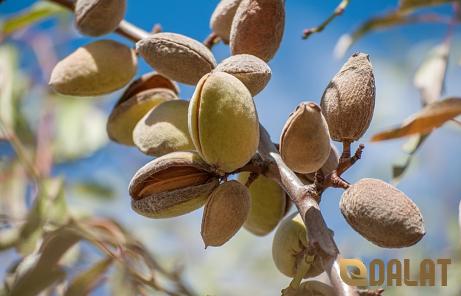
.
 A single serving of almonds provides nearly half of the recommended daily intake of vitamin E, making them an excellent choice for bolstering your body’s defenses. Almonds are also a great source of magnesium, a mineral that is essential for bone health, muscle function, and energy production. A deficiency in magnesium can lead to a host of health problems, so incorporating almonds into your diet is an easy way to ensure you are meeting your daily requirements. **The Culinary Delights of Almonds** Beyond their nutritional benefits, almonds are prized for their culinary versatility and ability to elevate a wide range of dishes. Whether you prefer them raw, roasted, or slivered, almonds add a delightful crunch and nutty flavor to both sweet and savory recipes. In baking, almonds are a popular ingredient in cakes, cookies, and pastries, where they can be used whole, sliced, or ground into almond flour. Their rich, buttery taste pairs beautifully with a variety of flavors, while their crunchy texture adds depth to everything from muffins to macarons. Almonds are also a key component in many savory dishes, particularly in Mediterranean and Middle Eastern cuisine. From almond-crusted fish to almond-studded couscous, these versatile nuts bring a distinct flavor and texture to dishes that is hard to replicate with other ingredients. For those with a sweet tooth, almonds are a beloved addition to desserts such as almond brittle, almond butter, and almond milk. Their natural sweetness and creamy texture make them a go-to ingredient for creating indulgent treats that are also packed with nutrients.
A single serving of almonds provides nearly half of the recommended daily intake of vitamin E, making them an excellent choice for bolstering your body’s defenses. Almonds are also a great source of magnesium, a mineral that is essential for bone health, muscle function, and energy production. A deficiency in magnesium can lead to a host of health problems, so incorporating almonds into your diet is an easy way to ensure you are meeting your daily requirements. **The Culinary Delights of Almonds** Beyond their nutritional benefits, almonds are prized for their culinary versatility and ability to elevate a wide range of dishes. Whether you prefer them raw, roasted, or slivered, almonds add a delightful crunch and nutty flavor to both sweet and savory recipes. In baking, almonds are a popular ingredient in cakes, cookies, and pastries, where they can be used whole, sliced, or ground into almond flour. Their rich, buttery taste pairs beautifully with a variety of flavors, while their crunchy texture adds depth to everything from muffins to macarons. Almonds are also a key component in many savory dishes, particularly in Mediterranean and Middle Eastern cuisine. From almond-crusted fish to almond-studded couscous, these versatile nuts bring a distinct flavor and texture to dishes that is hard to replicate with other ingredients. For those with a sweet tooth, almonds are a beloved addition to desserts such as almond brittle, almond butter, and almond milk. Their natural sweetness and creamy texture make them a go-to ingredient for creating indulgent treats that are also packed with nutrients.
..
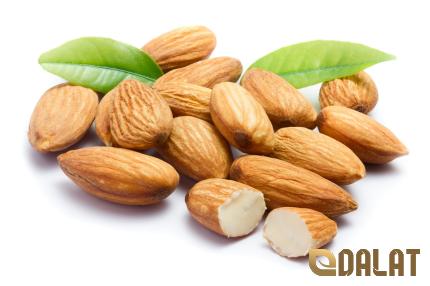 **Sustainability in Almond Farming** As the demand for almonds continues to rise, so too does the importance of sustainable farming practices that minimize environmental impact and support the long-term viability of almond production. Almond farmers are increasingly turning to innovative techniques to conserve water, reduce waste, and promote biodiversity on their farms. One of the most significant challenges in almond production is water usage, as almonds are a water-intensive crop. To address this issue, many farmers are investing in drip irrigation systems that deliver water directly to the roots of the trees, reducing waste and improving efficiency. Additionally, some farmers are implementing water recycling and conservation strategies to minimize their overall water footprint. Another area of focus in sustainable almond farming is soil health. By using cover crops, compost, and natural fertilizers, farmers can improve soil quality, enhance nutrient retention, and reduce the need for chemical inputs.
**Sustainability in Almond Farming** As the demand for almonds continues to rise, so too does the importance of sustainable farming practices that minimize environmental impact and support the long-term viability of almond production. Almond farmers are increasingly turning to innovative techniques to conserve water, reduce waste, and promote biodiversity on their farms. One of the most significant challenges in almond production is water usage, as almonds are a water-intensive crop. To address this issue, many farmers are investing in drip irrigation systems that deliver water directly to the roots of the trees, reducing waste and improving efficiency. Additionally, some farmers are implementing water recycling and conservation strategies to minimize their overall water footprint. Another area of focus in sustainable almond farming is soil health. By using cover crops, compost, and natural fertilizers, farmers can improve soil quality, enhance nutrient retention, and reduce the need for chemical inputs.
…
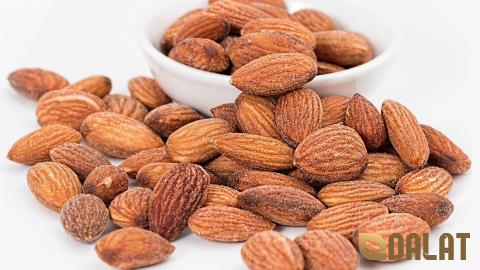 These practices not only benefit the environment but also contribute to the long-term productivity and resilience of almond orchards. Biodiversity is also a key consideration in sustainable almond farming, as it supports a healthy ecosystem and helps to control pests and diseases naturally. Some farmers are planting hedgerows, cover crops, and native vegetation to attract beneficial insects, birds, and other wildlife that contribute to a balanced and resilient farming system. **Almonds: More Than Just a Nut** In conclusion, almonds are more than just a delicious and nutritious snack – they are a versatile ingredient that can be incorporated into a wide range of dishes, from baked goods to savory entrees. Whether you enjoy them raw, roasted, or as almond butter, these nutrient-dense nuts offer a host of health benefits and culinary possibilities. Furthermore, sustainable farming practices in almond production are essential for preserving the environment, conserving resources, and safeguarding the future of almond farming. By supporting sustainable almond producers and choosing products that adhere to responsible farming practices, consumers can help to ensure that almonds remain a part of our culinary landscape for generations to come. So, the next time you reach for a handful of almonds or sprinkle them on your salad, take a moment to appreciate the journey these humble nuts have taken from the orchard to your plate. By unlocking the power of almonds, you are not only nourishing your body and delighting your taste buds but also supporting a sustainable and thriving food system. **Exploring Almond Varieties and Their Unique Qualities** Almonds come in various shapes, sizes, and flavors, each with its own unique characteristics that cater to different culinary preferences.
These practices not only benefit the environment but also contribute to the long-term productivity and resilience of almond orchards. Biodiversity is also a key consideration in sustainable almond farming, as it supports a healthy ecosystem and helps to control pests and diseases naturally. Some farmers are planting hedgerows, cover crops, and native vegetation to attract beneficial insects, birds, and other wildlife that contribute to a balanced and resilient farming system. **Almonds: More Than Just a Nut** In conclusion, almonds are more than just a delicious and nutritious snack – they are a versatile ingredient that can be incorporated into a wide range of dishes, from baked goods to savory entrees. Whether you enjoy them raw, roasted, or as almond butter, these nutrient-dense nuts offer a host of health benefits and culinary possibilities. Furthermore, sustainable farming practices in almond production are essential for preserving the environment, conserving resources, and safeguarding the future of almond farming. By supporting sustainable almond producers and choosing products that adhere to responsible farming practices, consumers can help to ensure that almonds remain a part of our culinary landscape for generations to come. So, the next time you reach for a handful of almonds or sprinkle them on your salad, take a moment to appreciate the journey these humble nuts have taken from the orchard to your plate. By unlocking the power of almonds, you are not only nourishing your body and delighting your taste buds but also supporting a sustainable and thriving food system. **Exploring Almond Varieties and Their Unique Qualities** Almonds come in various shapes, sizes, and flavors, each with its own unique characteristics that cater to different culinary preferences.



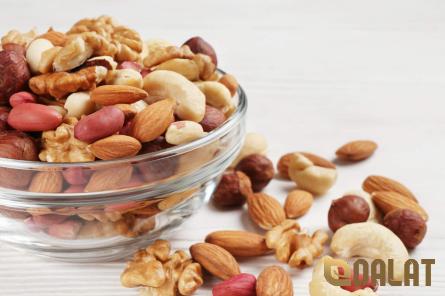


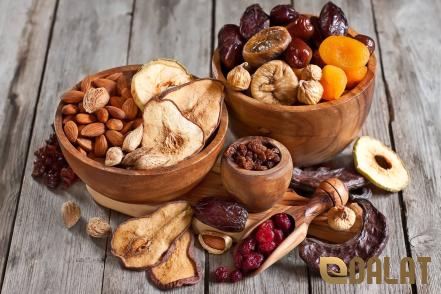
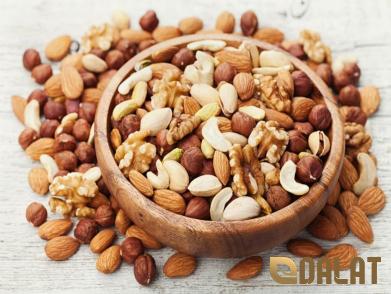


Your comment submitted.